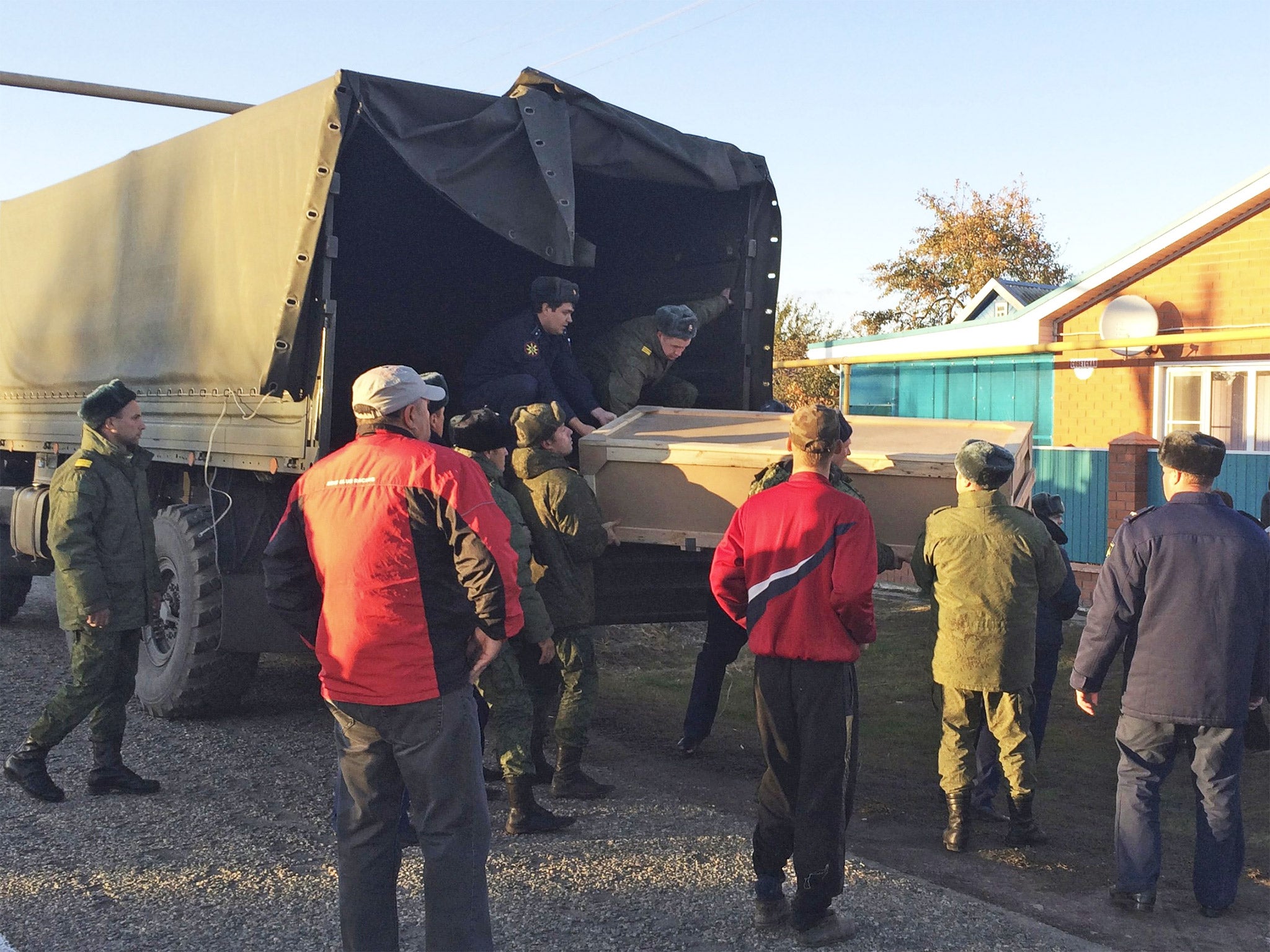Russia in Syria: Serviceman Vadim Kostenko becomes Russia's first military casualty of conflict – but how did he die?
Government says 19-year-old hanged himself after breaking up with his girlfriend, but his family have rejected this claim

Your support helps us to tell the story
From reproductive rights to climate change to Big Tech, The Independent is on the ground when the story is developing. Whether it's investigating the financials of Elon Musk's pro-Trump PAC or producing our latest documentary, 'The A Word', which shines a light on the American women fighting for reproductive rights, we know how important it is to parse out the facts from the messaging.
At such a critical moment in US history, we need reporters on the ground. Your donation allows us to keep sending journalists to speak to both sides of the story.
The Independent is trusted by Americans across the entire political spectrum. And unlike many other quality news outlets, we choose not to lock Americans out of our reporting and analysis with paywalls. We believe quality journalism should be available to everyone, paid for by those who can afford it.
Your support makes all the difference.The parents of the first confirmed Russian serviceman to die during the country’s military involvement in Syria have rejected the government’s claim that he took his own life.
Moscow’s ministry of defence confirmed that 19-year-old Vadim Kostenko died at an airbase in Latakia last week. But Mr Kostenko’s parents said they did not believe reports that he hanged himself after breaking up with his girlfriend.
“I will never believe this version [of suicide],” Kostenko’s mother, Svetlana, said in an interview with Reuters. “We spoke to him every day by phone for half an hour. [On Saturday, the day he died] he was cheerful, happy and he laughed.”
Unlike the war in Ukraine, where the Russian government continues to deny it has troops, Russian air strikes in Syria, which began in September, are enjoying support from Russia’s jingoistic state media. Much of the public is behind the Kremlin’s narrative that Russia is in Syria to help the fight against terrorism, rather than to bolster the regime of Syrian President Bashar al-Assad, as many observers and critics of Russia assert.
But Russian deaths in Syria could turn the tide of broad support for the air strikes currently enjoyed at home. If deaths mount, the Kremlin may struggle to justify the loss of Russian life so far from home to its public.
News of Mr Kostenko’s death emerged after a group of bloggers at Conflict Intelligence Team (CIT) learned of it from Russian social media. The team at CIT, who previously worked on unearthing evidence of Russian military deaths in Ukraine, communicated with Mr Kostenko’s relatives on Russian social networking site VKontakte, who confirmed his death. Only after the foreign ministry was asked to comment on the reports was an official announcement made.
Mr Kostenko had signed up to become a contract soldier with the 906th Close Air Support Regiment in June this year, immediately after finishing his draft in the army. He began working as a technician at an airbase in Latakia after being deployed on 14 September, two weeks before Russian air strikes in Syria began.
Friends posted condolences on Mr Kostenko’s VKontakte page. A friend of Mr Kostenko’s told CIT via VKontakte that the military officials who informed the family changed the version of events twice when talking to his parents.
Anna Musienko, Mr Kostenko’s aunt, told Reuters that she does not believe her nephew killed himself, adding that he told his family he could not decline the order to go to Syria.
Video: Putin defends air campaign in Syria
Until now, Russian soldiers killed in east Ukraine have been given secret burials, and their families forced into silence. A decree signed by Russian President Vladimir Putin in May this year made all Russian military deaths state secrets.
A report from Reuters on 20 October quoted a senior Syrian pro-government source claiming that three Russians had been killed alongside their Syrian counterparts in Latakia. Russia’s foreign ministry denied the claim.
Join our commenting forum
Join thought-provoking conversations, follow other Independent readers and see their replies
Comments